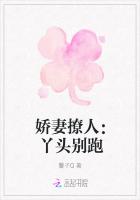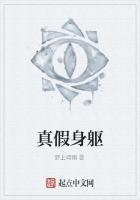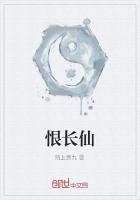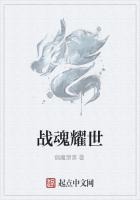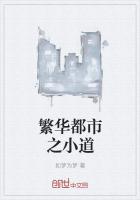In the summer of 1801 he wrote to tow friends. To Franz Wegeler in Bonn he wrote that he was very busy, with more commissions than he could cope with,and publishers competing to get hold of his latest works, but he was worried about his health, and particularly about his gradual loss of hearing. He had been leading a miserable life for the previous two years because of his deafness, and had avoided human company because he found it hard to tell people that he was deaf. He would always say, “I live entirely in my music.”
1801年夏他致信给两位朋友。在给波恩的弗朗茨·韦格勒的信中他说他很忙,创作疲于应付,出版商争着要得到他的新作,但是他担心自己的身体,特别是担心听觉渐渐在丧失。在前两年由于他的失聪,生活开始变得痛苦,同时他避免与他人在一起,因为他不愿告诉别人他聋了。他常常说,“我完全沉醉在音乐中。”
Two days later he wrote to Karl Amenda, a more recent friend. On the same lines, expressing the anxiety that his best years would pass “without my being able to achieve all that my talent and my strength have commanded me to do.” His fear that his deafness would prevent him from realizing his artistic potential led him to contemplate taking his own artistic life, but in the socalled Heiligenstadt Testament, addressed to his brothers and found among his papers after his death, which he wrote in the depths of despair in October 1802, he said that he had rejected suicide, and was resigned to his condition. He explained that his deafness was the reason why he had been withdrawing from people,s company, because he found it so humiliating not being able to hear, but he did not want to tell people about it. Although tempted to kill himself, “the only thing that held me back was my art. For indeed it seemed to me impossible to leave this world before I had produced all the works that I felt the urge to compose.”
两天后他写信给卡尔·阿曼达,一位新结识的朋友,在同样的字里行间,他表示他担心自己的黄金岁月将在“我没有凭才能和力量取得我应得的成就”中度过去时。他担心失聪会使他无法发挥艺术潜力能,这样想法导致他去考虑结束自己的艺术生命,但是1802年10月,他在极度绝望中写给弟兄们的所谓“海黎詹斯登遗嘱”里说,他已放弃自杀的念头,愿意顺其自然,这是他死后在他的书稿中找到的。他解释说耳聋是他远离众人的原由,因为他觉得失去听力是非常丢人的,可他又不想被别人知道。尽管他想自杀,“唯一能阻止我的是我的艺术。说真的在我没有把我觉得立即该谱的曲子都创作出来之前,我不能离开这个世界。”
During the summer of 1802 he had spent six months in Heiligenstadt, thirteen miles outside Vienna, on the advice of one of his doctors who thought that his hearing might improve in the peace and quiet away from Vienna. But his pupil, Ferdinand Ries (son of the leader of the Bonn court orchestra) visited him in the summer, and during a walk in the summer, and during a walk in the woods pointed out o fan elder twig. Beethoven could not hear it, and this made him very morose, As the winter approached he realized that his hearing was no better, and that it was likely to get worse, and he might end up totally deaf.
1802年夏,他已在距维也纳十三英里的海黎詹斯登度过了六个月,这是按照他的一名医生的建议,认为呆在维也纳郊外平静的地方有助于他听力的恢复。但他的学生斐迪南·雷斯(波恩宫廷乐队头头的儿子)那年夏天去拜访他,并一起在树林里散步时,他指着一个正用稍稍长成的树枝做的笛子吹奏的牧羊人。贝多芬却听不到,这使他非常郁闷。到了那年冬天,他意识到他的听觉不但不见好转,而且我可能每况愈下,以至彻底失聪。
It could be argued that Beethoven,s deafness helped the development of his art: isolated from the world, and unable to perform, he could devote all his time to composing, He was already composing less at the piano, and the first of his bound sketchbooks, in which he made detailed drafts of the works in progress. Date from 1798. In his panic, at the beginning, Beethoven may have believed himself to be deaf. He suffered from tinnitus (humming and buzzing in the ears), and loud noises caused him pain. In 1804 his friend Stephan von Breuning, with whom he briefly shared lodgings, wrote to Franz Wegler about the terrible effect his gradual loss of hearing was having on Beethoven: it had caused him to distrust his friends, and he was becoming very difficult to be with. But Beethoven did not start using an ear trumpet until 1814.
有人说贝多芬的失聪帮他提高了他的艺术:与世界隔绝,无法演出,他得以全身心地投入创作。他创作的钢琴曲本已越来越少,在他装帧过的概要手册的第一册中,他详细地做了从1798年起的作品计划纲要。他一开始,忐忑不安的贝多芬就认为自己多半会变聋,他饱受耳鸣的痛苦(耳朵里嗡嗡作响),巨大的嗓音使他痛苦不堪。1804年,他的朋友斯蒂文·冯·勃鲁宁曾与他共同住过一段时间,这位朋友在写给弗朗茨·韦格勒的信中说,贝多芬听力的逐渐丧失给了他可怕的影响:这使他不再信任他的朋友,同时别人也很难与他相处。但贝多芬直到1814年才开始带助听器。
But above all else, Beethoven was dedicated to his art and the urge to compose remained with him throughout his life. It may be that he shielded away form the commitment of marriage because he knew it would interfere with his art. From a very early age he wanted to compose and, although he needed to earn a living, he wrote “I love my art too dearly to be activated solely by selfinterest.”
但无论怎样,贝多芬献身于艺术并且一生致力于作曲。他避开结婚可能是因为他认为这会对他的艺术造成阻碍。早年时他就希望创作,尽管他需要维持生计,但他写道:“我深爱我的艺术,我绝不会为一己之利所驱使。”




